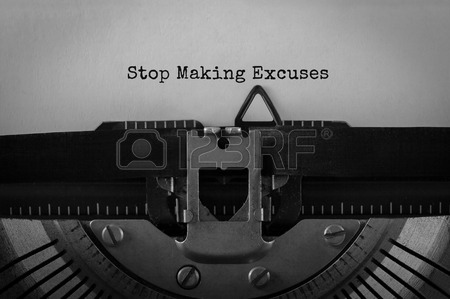Why five-star reviews are the best FREE marketing tool you have

Asking clients to recommend your business is a great way to boost your credibility online. But if you’re not in the habit of asking for reviews, the idea can feel icky, to say the least! Here’s HOW and WHY to ask for reviews.
For the past couple of years, I’ve focused on asking clients for testimonials on LinkedIn – and I now have almost 130 recommendations for everything from website copywriting and copy coaching to marketing support and speaking.
Read on to find out how you can do the same…
The case for online reviews
You just spent a fabulous weekend in London, at a gorgeous hotel with attentive, friendly service, soft, fluffy towels and city views to die for. Chances are you found that hotel by reading traveller reviews on a site such as TripAdvisor or Booking.com.
Most of us choose our holidays, our cars and the movies we watch on the strength of reviews written by other people.
We book dinner at restaurants we’ve read about on Google, and never buy anything from Amazon without first checking the reviews.
Sharing is caring
We live in a culture where we love to share our experiences – good or bad – to help other people make the right choices. Reviews and recommendations shape our lives and influence the decisions we make.
Given a list of three builders, we pick the one who built that incredible extension for the guy up the road. As for graphic designers… did you see how many people have recommended that freelancer in Cheltenham? He must be great!
Customer opinions help to build trust
Recommendations tell other people that we know our stuff. We deliver. We’re credible. We’re creative. We add value. We make their lives easier. We’re fun to work with.
In his 1984 book, Influence, Robert Cialdini lists social proof as one of his six principles of persuasion. When more people are doing something, we feel a compulsion to follow suit.
And therein lies the value of the humble testimonial.
Here are my top tips for using online reviews to make your business more successful.
When’s the best time to ask for a recommendation?
Most clients will be happy to recommend your business if you’ve provided great service. It’s best to ask for an online review soon after you’ve finished a project, while the experience of working with you is still fresh in their mind.
Which reviews should I ask for?
Whether you should focus on encouraging customers to review you on Google, TripAdvisor, Trustpilot, Facebook or LinkedIn depends on preference and the type of business you run.
For example, TripAdvisor tends to be the first port of call for hotels and restaurants, Trustpilot is popular with tradespeople, while LinkedIn is popular among professionals. Rather than diluting your efforts and getting a few results across a range of channels, focusing your efforts on one channel can get the best results.
How do I ask my customers to recommend me?
Whichever channel you decide to focus on, send clients and customers a direct link to the review page of the site with a short, friendly note asking if they’d mind taking the time to review your business. If you can ask them in person, even better!
If you’re not used to asking for feedback it might feel uncomfortable the first time you do it, but once you get into the habit it’ll soon become second nature.
How do I ask for a recommendation on LinkedIn?
Asking for a testimonial on LinkedIn is pretty straightforward:
- Open LinkedIn.
- In the search button, top left, type in the name of the person you want to ask for a recommendation.
- Open their profile.
- Under their name are two buttons: Message and More…
- Click More…
- Select Request a Recommendation.
- Use the down arrows on the right to select your relationship. For example: “Claire was a client of mine”.
- Select your position at the time of working with them (hint: it’s usually the top option).
- Personalise the recommendation request, and hit send.
Why Google reviews are good for business
Until now, I’d never thought of asking a client to review me on Google, but with studies proving that Google reviews can help to catapult your business to the top of Google search results, asking for Google reviews is on my action list for 2019.
How do I ask for a five-star Google review?
Asking for a five-star Google review is super simple:
- Open your web browser.
- Type your business name into Google – not the URL to your website – as if you were a customer searching for your business.
- Scroll down to find the button that says Write a review and click this button.
- Copy the lengthy URL to this page.
- Use a URL shortener such a Bitly to create a more user-friendly URL.
- Save your shortened link somewhere safe so you can use it again and again (I texted mine to myself and copied it into Evernote – whatever works for you).
- Email recent clients inviting them to leave you a Google review, and remember to include the shortened link to make it super straightforward.
Four uses for online reviews
- Use them for your own marketing Quotes can be used to spice up your website, provide content for your social media accounts, or as the basis for case studies to showcase the value of your services.
- Get noticed online Reviews and recommendations – particularly Google reviews – can help drive your business to the top of search results online.
- Get real Online reviews are a great way to keep track of the things your customers love – and hate – about your business, your products or your services. See negative reviews as a chance to improve your service, not a reason for despair – and always respond politely and promptly.
- Give yourself a boost Bad day? Lost confidence? Read your customer testimonials to remind yourself of why you do what you do – and just how good you are at it.
Just ask
Most of us are happy to share our experiences, and your clients are no exception – so start turning them into online advocates for your business and building up your online reviews. You’ll soon notice the results.
Specialist or generalist: which type of copywriter is right for your business?

A tweet from Alasdair Murray – who describes himself as ‘the recruitment copywriter’ – got me thinking.
Specialist copywriter vs generalist copywriter: which is best?
To niche or not to niche. It’s one of the biggest considerations for anyone getting started in copywriting – and equally important for any business choosing the right marketing copywriter to work with.
“Do I specialise in one area or industry?” asks the aspiring copywriter.
“Do I need a specialist in my industry?” asks the business owner.
In the 19 years that I’ve worked as a freelance copywriter, two questions crop up with predictable regularity: “How did you get started?” and “Do you specialise?”.
My answer to the latter is yes. I specialise in writing clever copy that helps businesses become more successful.
Cheating, right?
You were expecting me to say, “Yes. I specialise in travel/engineering/unicorn maintenance*” *delete as appropriate
To answer the first question… (stay tuned – it’s relevant)
I started my career in financial services marketing. I wrote shiny brochures for new investment products, leaflets about mortality and morbidity to help advisers sell more life assurance, and pension marketing messages about the cost of delay.
Did this early career choice make me want to specialise as a financial services copywriter?
Did it heck.
Don’t get me wrong. I loved my job. Really. Bloody. Loved it.
Nothing to do with swanky lunches in Canary Wharf with Ogilvy & Mather (as they were back then) or the glamour *cough* of art directing photo shoots for those investment brochures.
(Okay, maybe a smidge. I mourn those days. Today’s corporate entertaining is a one-shot skinny latté at my gym.)
That job was just about the best start I could have had to my copywriting career. In my opinion, real-world, earn-your-stripes commercial experience backed up by on-the-job training beats the pants off academic study – but each to their own.
To the matter in hand…
If you’re an aspiring freelance copywriter…
(Business owner looking to hire the right copywriter? You can skip this bit.)
There’s no right or wrong answer to the question of whether or not you should specialise.
If you’ve spent your career working in a particular industry and you still enjoy it, you may well want to stay there.
It’s where you’ve made connections, where you’ve built up your experience, and where you really know your stuff.
For you, writing about your specialism is second nature. You know it all already.
Decision made.
But wait…
For me, the best thing about working across a wide range of industries is the variety.
No two jobs are the same.
I don’t spend my days trying to come up with ingenious new ways to sell the same product or service.
Every project is a fresh opportunity to understand a new market’s challenges, audience and opportunities. Every job is as exciting and different as the last. It’s often a steep learning curve, but my god it’s rewarding.
Nineteen years into my freelance career and I love this job even more than when I started.
Would I be saying that if I’d specialised? I don’t know.
If you’re struggling to decide, trust your gut instinct and try not to overthink it.
What’s the worst that can happen? You set yourself up as a specialist cupcake copywriter, or the authority on orthopaedics and it doesn’t work? Onwards and upwards.
Don’t wait to perfect your idea – start from where you are, and give it your best shot. You can always revisit and refine later. (That’s a whole other blog post…)
Let me know how you get on.
If you’re a business owner choosing a copywriter…
One of the best things about working with someone who doesn’t specialise in your industry is that they don’t specialise in your industry.
Sorry?
It’s simple. Writing copy that sells involves understanding what makes your business special, and what makes your customers tick.
A specialist already knows this. They’ve written this stuff many times – heck, they may even work for your biggest competitor.
A non-specialist makes no assumptions. They see things with fresh eyes and the same curiosity your potential customer has when they first stumble across your business.
They ask the right questions to find out how your business works, the problems you solve for your customers, and what makes your product or service better than the competition.
I may not be familiar with your industry. I may not have written a website for one of your competitors. But you bet your life that what I write for you will be fresh, and relevant, and incisive.
And at the end of the day, isn’t that what all businesses want?
__
In the interests of fairness and balance, here’s the view from the other side of the fence, written by the aforementioned recruitment copywriter, Alasdair Murray.
Copywriting myths debunked: time to stop making excuses!

You know exactly why you need a copywriter.
You know a copywriter can help get your business noticed for all the right reasons.
That they’ll help you identify the special essence that’s unique to your company – the things that make you stand out from the crowd.
And that they’ll help you articulate the spirit of your business in a way that convinces your target market to choose your business, buy your products, and hire your services.
The reason you haven’t hired a copywriter isn’t because you don’t know you need one.
It’s because you’re making excuses.
You’ve begun to believe those myths you churn out to justify why you keep writing your own copy. Those same myths that stop you taking the plunge and choosing a copywriter who can take away the pain, save you time and help you get a head start on your marketing.
Here are four of the most common barriers to using a copywriter.
Which do you identify with?
Copywriting myths
Myth 1: It’s only words
“Surely, I can write the copy myself – why do I need a copywriter?”
Whether you consider yourself a reasonably capable writer or you have an English degree, there’s a big difference between everyday writing and writing to sell.
A copywriter will get inside the head of your customers. They’ll help you identify the things that make your business different – special, even – and articulate those things in a clear, concise and compelling way.
However confident you are about writing your own marketing materials, writing for the web is a different skill.
A copywriter knows how to write in a way that speaks to your customers and to Google – and their words help your business get noticed online by your target audience.
Myth 2: It’s all in your head
“No one knows my business as well as I do!”
That’s true. But a good copywriter knows the questions to ask about your products and services, the problems they solve for the people who buy them, and the sort of customers you want to attract.
They’ll talk to you about your marketing goals and the reasons why you’re in business. And they’ll work their magic to transform that information into words that work hard to promote your company.
Myth 3: It’ll cost too much
“I can’t afford a professional copywriter – it’s too expensive!”
Like anything that works, good copywriting doesn’t come cheap. But your time is money – and if you’re spending that time trying to write your own website or brochure when your skills lie elsewhere, you’re not saving money – you’re wasting it.
The most effective marketing is a collaboration between hardworking, clever copy and great-looking, functional design.
Designers just love working on projects that are being professionally written – it makes them look good. So remember: if you blow your marketing budget on graphic or web design and have no money left to spend on copy, you’re missing a trick.
Pay a professional to do a proper job, and focus on the superpowers that make you money. Chances are that’s the reason you went into business, after all.
Important note: any time you’re tempted to cut corners and buy on price alone, remember this mantra: you pay peanuts, you get monkeys.
Myth 4: It’ll take too long
“I don’t have time to brief a copywriter – it’ll be quicker to write it myself.”
Earlier this month, I had a meeting with a website designer, who told me that seven of the beautiful websites he’d designed had stalled, simply because the client had decided to write their own copy.
In the time you spend agonising over the best way to promote your business – not to mention the stress and headspace involved in doing it yourself – a professional copywriter could have written your website copy ten times over.
That’s valuable time your shiny new site could be live and doing what a good website should do – getting your brand out there, promoting your business, building trust, and selling your products.
Time that your competitors are out there doing just that… and pinching your customers while they’re at it.
If any of those excuses sound familiar, have a quiet word with yourself and make this the year you leave your copywriting to the professionals.
How clever customer profiles help you attract the right clients

Whatever business you’re in, you can’t successfully market your products or services without knowing who you’re selling to. To quote Friends (the one with Russ, if you must know) “You can try, but you will not be successful”.
One of the first questions I ask business owners when we’re chatting about their marketing is, “Who is your target customer?”. Sometimes they have an idea – female, mid to late 30s, ambitious – but that’s often about as far as it goes.
Far too often (you didn’t hear that from me) they’ll look a bit blank and reply, “Well, anyone, really…”.
You wouldn’t buy shoes without knowing your size, so don’t think about writing copy to sell or promote your business without knowing exactly who you’re trying to convert.
Avatar? I thought that was a film full of giant blue people?
Customer profiles – sometimes called buyer personas, or avatars – are an in-depth description of your ideal client. They look a bit like this:
The expert start-up
Profile
In her mid-30s, Rachel is a divorced graduate with two boys in junior school. She gave up her job so she could achieve a balance between work and family, and believes she can earn more working for herself.
She’s experienced in her industry but has become disillusioned and wants to use her considerable knowledge to help other businesses.
Goals
Rachel has ambitious plans for her own company, and needs a great website and marketing materials to help her launch her business and build her customer base.
She wants to earn enough for financial independence and security for her family, and would like to be able to afford a decent annual holiday for her and her boys.
Challenges
Juggling is her biggest challenge, and she wants to appear professional at all times, while balancing the needs of her family.
Communication styles
She’s happy to talk on the phone and meet face to face when necessary, but deep down prefers to email, as she can respond in her own time, making juggling easier. She is a big social media user and very switched on to the latest trends.
You may have more than one customer profile – perhaps a different persona for different products or services. And that’s okay. The key is to take time to understand the differences between the customers you want to attract, and their motivations to buy.
Talk to the heart
Taking the time to identify and outline your ideal customer and the things that make them tick, makes it easier for you – or your copywriter (hello!) – to talk to them in their language.
As Nelson Mandela once said: “If you talk to a person in a language they understand, that goes to their head. If you talk to them in their language, that goes to their heart.”
When you use your customers’ language you have more influence. By understanding what motivates them, and the things that are important to them, you can begin to address their fears, solve their problems, and excite them with the things they desire.
That insight is like a superpower. Once you know who you’re writing to, you have the power to use that in-depth knowledge to influence them, by producing targeted, segmented marketing messages that really mean something to your audience.
Worried this all sounds a bit manipulative?
Think of it this way. You’re in business because you genuinely believe in your products and services, right? (Time to dust off that CV, if not.)
And if that’s the case, then you genuinely believe in their ability to solve problems, and to make life easier or more enjoyable.
Client with gaping need, meet supplier with perfectly formed solution. You’re welcome.
When it comes to addressing your target audience, there’s no one-size-fits-all solution. Using generic marketing messages is like taking a scattergun approach to your marketing copy. You might reach the odd new customer by chance – perhaps the timing just happened to be right – but you’re more likely to hit the mark if you segment your messages, and use a targeted approach.
That’s when you begin to generate real results.
Social media for small businesses – and why you’re doing it wrong

Let’s get this out the way first, shall we? Social media is as much a pain in the backside as it is a blessing and a way of attracting new clients.
If you’re not disciplined – scrap that… even if you are – it can be a huge, momentous, gargantuan distraction.
It’s also an enormous source of pressure. It sits there in the digital ether mocking you. “Have you updated your LinkedIn profile recently? You really should’ve asked that client for a recommendation by now!” “Wait – you mean you haven’t thought of something acerbic and brilliant to share on Twitter this morning? What’s wrong with you?” “C’mon, you know there’s no point even having a Facebook page these days unless you’re prepared to dig deep and advertise!”
Social. It wants a piece of you. And it wants it NOW.
If you take just one piece of advice away from this post, it should be this: unless you have literally no work – and if that’s the case, I humbly suggest you have bigger problems than how to manage your social media presence – you don’t have time to master all platforms.
You’re not omnipotent. Or is it omnipresent? Or both.
Pick one or two platforms that are best aligned with your client base and do them really, really well. No more.
Sure, you can establish a profile on every platform out there, if you really want to cover all bases – that certainly won’t harm your Google ranking – but as long as your information is up-to-date and relevant, leave it right there, thank you.
Then back slowly away from the time-sapping, energy-draining social media vortex.
Which will you choose?
Those of you with visual businesses – hotels, florists, designers, manufacturers of cute-looking-OMG-I-just-HAVE-to-have-thats – you’ve got it made. In fact, I hate you. Just a tiny little bit.
Your business can flirt with any one of the social platforms and get those customers clicking and buying like a match made in retail heaven. Take your pick. Then take your pics. (Sorry.)
Instagram and Pinterest
Once you know your audience, and you’ve nailed your brand (and I know just the guys if you need help with that) make sure everything you post reflects your brand’s values and a professional image – by that I don’t mean business speak, I mean mistake-free – and you’ll soon be attracting those clients like a match made in retail heaven.
Get busy with that camera and learn to make your business look great. Great social media content doesn’t need expensive gear. Get your smartphone out and get snap, edit, and post happy.
Apps such as Over, Canva and Spark Post help you combine text and images for eye-catching posts, while free apps such as Snapseed and Afterlight are great for editing your pics.
Experimenting will teach you the hashtags and style that works for your audience, and remember, there’s no harm in taking inspiration from competitor businesses that do Instagram and Pinterest well – just no outright copying, please. No one likes a cheat.
Then feel a teeny bit smug – and certainly grateful – that you don’t have to think of clever ways to illustrate being a goddamn freelance copywriter. Because, let’s be honest, Instagram and Pinterest aren’t a lot of use to service businesses. I know. I am one.*
*Okay, so I do them both anyway, but I do them for fun. Any business I get on the back of them is incidental, not planned. Sorry, social media gurus.
I’m going to stick my neck on the line and say whatever business you’re in, you need a profile on LinkedIn. Not a company page. A personal profile.
LinkedIn doesn’t have to be one of the two or three platforms you decide to do really well. You don’t have to sit on there day in, day out, engaging, liking and posting – but show up and be present.
If I meet someone at a networking event, the first thing I do when I get back to the office is connect with them on LinkedIn. If they’re not on there, I assume either they don’t take their business seriously (and if they don’t, why should I?) or that there’s something fundamentally wrong with them. And believe me, I’m only being a tiny bit tongue in cheek when I say that.
Think of LinkedIn as your virtual CV.
I’m in my 19th year of working freelance, and if anyone is out of touch enough to ask me for a CV, I refer them to my LinkedIn profile. Because even if LinkedIn wasn’t one of my three (it is) it would sit there, up-to-date and relevant, showcasing my skills and experience to anyone who wants to work with me.
That’s the bare minimum.
If you want to do LinkedIn well, start by optimising your profile. There are plenty of people out there who’ll happily tell you how to do that. Keep it open in your browser and check it once a day. Keep your profile up to date. Like and comment on relevant posts. Ask your clients for recommendations (I’m up to 102, at the last count). Congratulate people on their new jobs.
But be authentic. Don’t like and comment and share for exposure. That doesn’t feel good.
You might even consider posting your own articles on there, just like this one.
I’ve had such good results from my LinkedIn articles that I’ve started posting all new blogs on there and using my other social media accounts to drive traffic to the post on LinkedIn, rather than to my website.
I know. Controversial.
But it’s not, really. Engagement on my most popular post – remember the secret confessions blog? – looked a little something like this: a tiny little circle representing all 3,200+ of my LinkedIn connections, and a great big circle representing views from second-tier connections. That’s a LOT of engagement, and a lot of quality leads heading my way.
Thanks, LinkedIn. I love you, too.
I love Twitter. There are still predictions of it going down the pan. I hope that doesn’t happen.
But people still get it wrong. They post things like this:
Looking for a copywriter? Let me write your website for you!
*hides eyes*
Has it gone yet? Seriously, that’s the quickest way to turn people right off your business. Social should be just that – a chance to engage with people. Be professional, but don’t be afraid to share your personality. People deal with people, remember? Not bland, faceless companies, bun-fighting for every job that comes along.
So dial down the desperate, and start engaging, informing, and entertaining.
Get your name out there as a trusted source of information on your area of expertise. Share tips, tricks and advice. Reply to questions. And be nice.
I’ve never been convinced about Facebook pages as a tool for service businesses, but perhaps that’s simply because it doesn’t work well for me.
If you’re in the business of selling cupcakes, jewellery, or another photo-friendly product, it can work really well – and there are many pages out there that prove it.
That said, I keep my page up to date, and aim to post daily. Language-relevant funnies and thought-provoking questions get the best engagement for me, but trial and error will show what works for your business.
Whatever business you’re in, you’re more likely to attract new customers and sales through Facebook if you’re prepared to advertise. And that’s a whole other subject.
So, that’s it. I know – I haven’t touched on the virtues of scheduling, the value of video, or the pros and cons of narrative vs ephemeral content (think Snapchat and Instagram stories), but then I’m a copywriter, not a social media guru. Besides, I can always save that for another day.
Which platforms work best for your business? Drop me an email and let me know.
